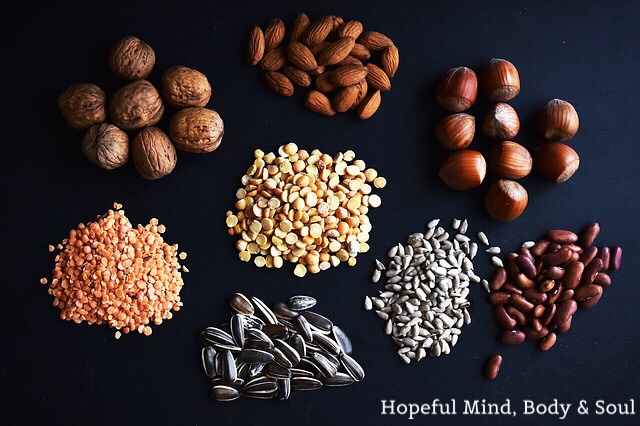If I had a dollar for every time someone said “You obviously don’t get enough protein”, or “How can you have enough protein without consuming meat”, I’d have a pretty penny. The truth is plant based protein is plentiful! Before we get into vegan protein sources lets go through a basic understanding of what protein is.
What is it?
In the world of food and nutrition there are macro nutrients and micro nutrients. Macro nutrients are essential for providing the energy we need to live. Protein is one of the three macro nutrients we to survive. Proteins are made from long chains of amino acids (polypeptides). The protein type depends on which amino acids are in the chain and the order they are in. Protein helps with the growth and repair of tissues, improves enzymatic function (chemicals which control the reaction time, e.g. digestion), acts as a carrier for other nutrients and helps with hormone functions, as well as forming antibodies to protect the body.
Protein Requirements
1g of protein = 0.75. For mainly sedentary people multiply their weight in KG X 0.75. For more active people you multiply their weight by 1.2-1.7 depending on the main type of activity and fitness level. The following is protein requirements based on the average person.
Weight in KG X 0.75 = Protein Requirements
E.g. 52kg X 0.75 = 39g of protein required per day
OR
0.34 X Weight in LBS = Protein Requirements
E.g. 0.34 X 115lbs = 39g of protein required per day
Protein Requirement Concerns
Most people consume excessive amounts of protein. Surface protein cannot be stored, and will not expand muscle with extra consumption. Over-consumption offers no benefit whatsoever. Up-to 25% of energy consumption (from all macro nutrients), should be fine for kidney health. People with diabetes or early stage kidney disease will likely need to limit their intake and should consult a doctor.
Plant Based Power
Traditionally in the west consumers consider meat to be THE source of protein and don’t consider vegetable sources seriously as a viable option to provide enough protein. It doesn’t help that experts used to think that to get all of the necessary amino acids in a vegan diet one would have to eat certain proteins together to receive adequate nutrition. This is NOT true. As long as you eat a VARIETY of plant based proteins in a day (together or separately) you will have all of the required amino acids.
Most national food guidelines recommend 2-3 servings of protein per day. Vegans should aim for 3 servings. One serving is equivalent to 6 tbsp of beans, peas, lentils, 125g of hummus or 100g of tofu.
Food Sources
I’ve outlined some plant based protein sources below.
- Beans
- Peas
- Quinoa
- Lentils
- Quorn
- Ezekiel Bread
- Nuts and Seeds
- Oatmeal
- Spirulina
- Tofu
- Fortified cereals
- Etc. (this is not an extensive list, there are plenty more plant based protein options out there)
Disclaimer: This article is for information purposes only and not specific health advice. If you have any concerns or questions about protein requirements ask your healthcare provider.
Protein Rich Recipes to Try
Sources
https://www.ncbi.nlm.nih.gov/pubmed/19562864
http://healthyeating.sfgate.com/6-primary-functions-proteins-5372.html

